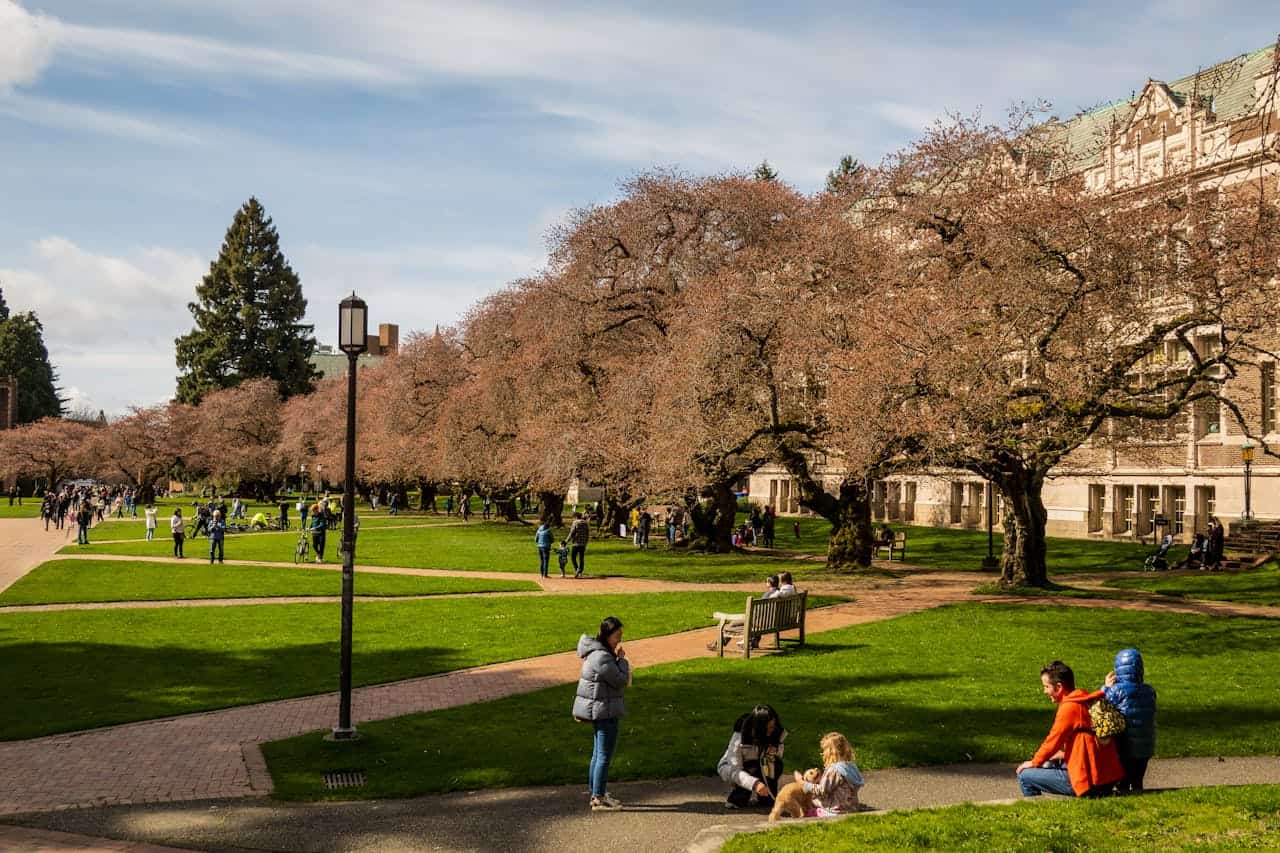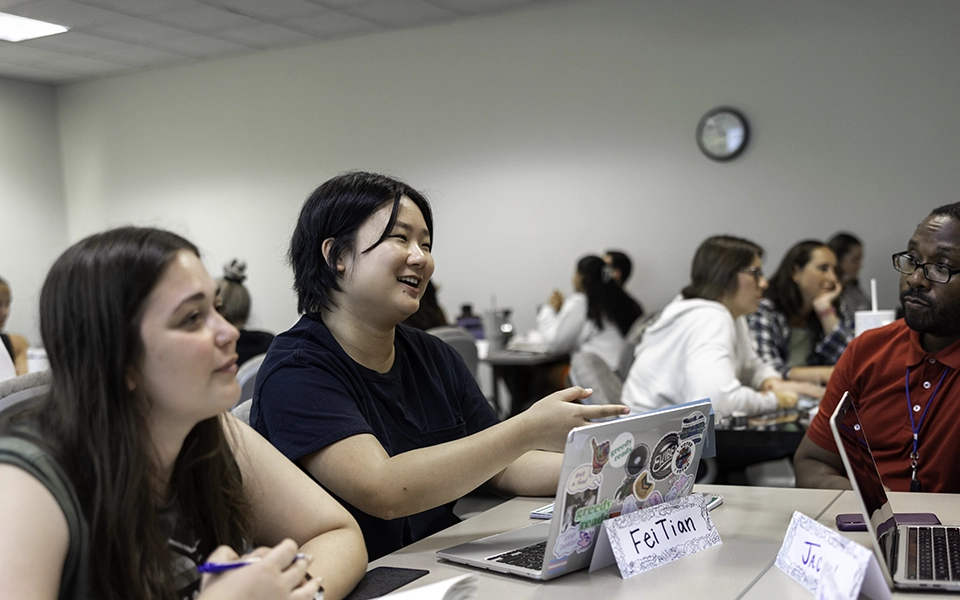From Bangladesh to Europe: Erasmus+ exchange programme for undergraduate students

Studying abroad during their undergraduate years is a dream for many students, and for some, it becomes a life-changing reality. The Erasmus+ exchange programme offers students the unique opportunity to study abroad for a semester at a European university.
In Bangladesh, the Erasmus+ programme has gained momentum in recent years, with universities like Daffodil International University and Independent University, Bangladesh actively participating in exchange programmes with European institutions. Through these partnerships, students from Bangladesh are given the opportunity to travel to Europe on a fully-funded programme and study at renowned universities, experiencing new academic environments and gaining exposure to different cultures and ideas.
Morshedur Rahman Khan, a student of Information Technology & Management at Daffodil International University, and Tanfia Khan Disha, a student of Life Sciences at Independent University, Bangladesh, both took up the opportunity to participate in the Erasmus+ exchange programme.
Morshedur, who studied Computer Science at Mälardalen University in Sweden, and Tanfia, who initially studied at the Department of Agriculture & Life Sciences at the University of Maribor in Slovenia before switching to the Department of Chemistry & Chemical Engineering, found that Erasmus+ provided an opportunity that added enormous value to their academic and professional journeys.
Morshedur explained his motivation for choosing Erasmus+ by saying, “I chose to study abroad with Erasmus+ because it offered a unique chance to experience a new education system, gain international exposure, and challenge myself in an unfamiliar environment. The programme’s focus on cultural exchange, academic excellence, and skill development perfectly aligned with my aspirations.” He added that the Erasmus+ scholarship made it financially accessible, removing barriers that might have prevented him from pursuing his dream.
Tanfia shared, “It seemed like a great opportunity to grow, both academically and personally. I was excited to experience new cultures, meet people from different backgrounds, and gain a global perspective on my field of study.”
Morshedur shared, “The best part of studying abroad was the freedom to learn, explore, and grow. Sweden’s education system was eye-opening as it focused more on research, critical thinking, and practical applications than memorisation.” The shift from a more traditional education system in Bangladesh to Sweden’s research-driven and discussion-based approach challenged him to think in new ways and broaden his academic skills.
Tanfia found the academic challenges in Slovenia both rewarding and eye-opening. “Academically, it was more intense than in Bangladesh, but I enjoyed the challenge. The labs were incredibly well-equipped, which allowed me to gain the hands-on experience that I wouldn’t have gotten here,” she shared.
At the University of Maribor in Slovenia, Tanfia was introduced to cutting-edge research in Life Sciences, which deepened her understanding of her field and gave her a sense of what the global academic landscape looks like.
Morshedur also reflected, “Studying in Europe gave me access to high-quality labs and cutting-edge research facilities. The industry-focused, practical curriculum enhanced my technical expertise and career prospects.”
While academic growth is key, the personal transformation that students undergo is just as important. For Morshedur and Tanfia, living in a new country and adapting to different cultures was a major part of their experience.
Morshedur’s journey in Sweden brought challenges, particularly in regards to adjusting to the long, dark winters and a new lifestyle. “The cold Swedish winter was a shock, and adjusting to the new environment took some time. There was barely any sunlight, and I had to adjust my routine to make the most of the daylight,” he explained. These early challenges helped him grow more adaptable and independent.
Tanfia’s experience involved a period of adjustment too. “I walked 10 kilometres a day until I figured out the public transportation system,” she recalled. She also had to adapt to cultural differences, like the importance of punctuality in Slovenia. “Punctuality was super important there, whereas in Bangladesh, being 5 minutes late is usually no big deal,” Tanfia said, reflecting on how small things like this could affect her daily routine.
Both Morshedur and Tanfia were able to take these challenges in stride, ultimately benefiting from them in ways they hadn’t anticipated. The experience helped them develop resilience, independence, and problem-solving skills that will serve them throughout their lives.
Both students immersed themselves in local cultures, further enriching their experiences.
“One fascinating aspect was the Swedes’ appreciation for work-life balance and the concept of ‘lagom’, meaning ‘just the right amount’ in everything,” Morshedur said. This philosophy had a significant impact on his own life, prompting him to think more critically about how he approached both work and leisure.
Tanfia embraced the diversity around her in Slovenia. “Studying abroad completely changed my perspective on diversity. Being surrounded by people from different cultures made me appreciate how unique everyone’s experiences are,” she reflected. Her exposure to different cultures made her more open-minded, inclusive, and respectful of others.
Another profound aspect of Erasmus+ is the friendships and networks that students build. Morshedur and Tanfia found that, while making friends initially proved challenging, the friendships they built were some of the most rewarding aspects of their experiences.
Morshedur shared, “Making friends wasn’t easy at first. Swedes are reserved, but joining student events and group projects helped me connect. I met incredible people from all over the world, and by the end of my stay, I had built friendships that felt like family.”
Tanfia also made lifelong friends. “Traveling with my friends was one of the highlights. We explored new cities, tried local food, and saw iconic spots like the Eiffel Tower in Paris, the Colosseum in Rome, the Hungarian Parliament Building in Budapest, and the UN Headquarters in Geneva,” she said.
Looking back, both Morshedur and Tanfia agree that Erasmus+ was an amazing experience that shaped their academic, personal, and professional lives.
“Studying abroad through Erasmus+ has given me a competitive edge for my career. It provided international exposure, taught me how to work in diverse teams, and improved my adaptability,” Morshedur said.
Tanfia’s perspective on her future also changed after completing her study abroad. “It completely shifted my perspective. It made me realise that the world is moving at a rapid pace, and to keep up, I need to think beyond traditional boundaries,” she explained. Erasmus+ gave her the clarity and confidence to pursue her future goals with a broader vision of the world.
For students in Bangladesh, the Erasmus+ programme offers an incredible chance to experience new cultures, enhance their academic skills, and gain lifelong memories. Morshedur and Tanfia’s stories offer a glimpse into the life-changing impact of studying abroad, with Erasmus+ having the potential to change the course of their lives forever.
link

 For all latest news, follow The Daily Star’s Google News channel.
For all latest news, follow The Daily Star’s Google News channel. 






